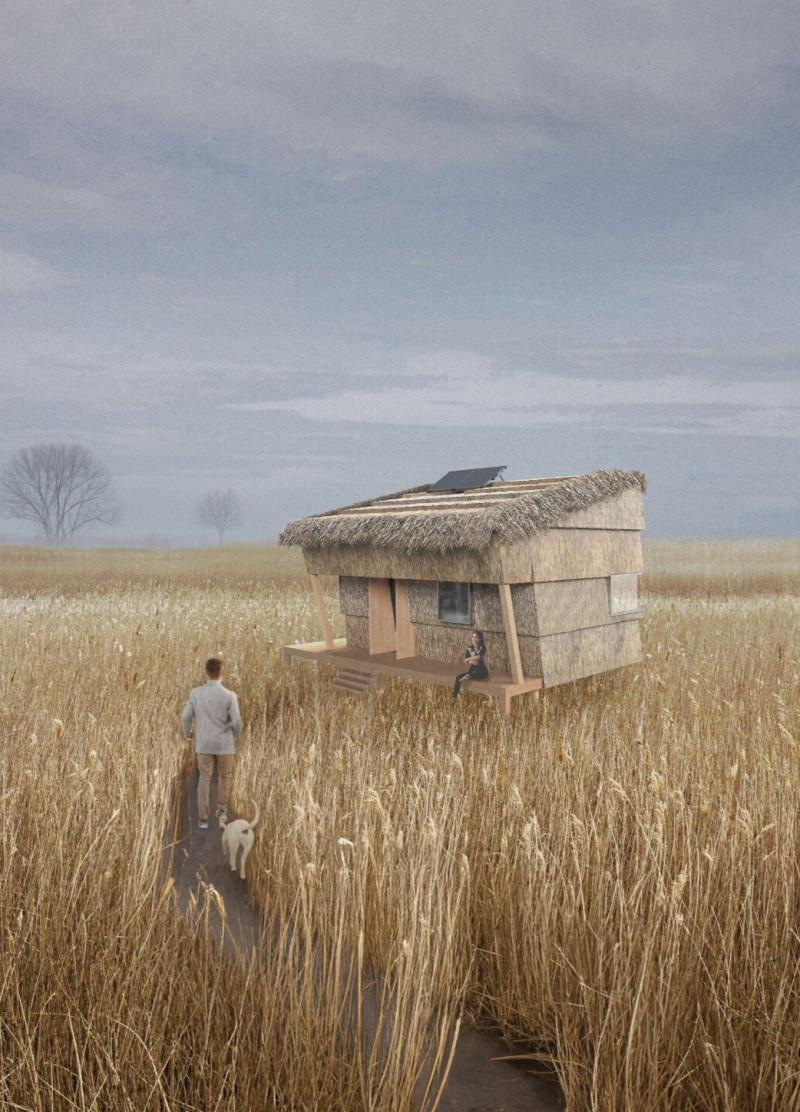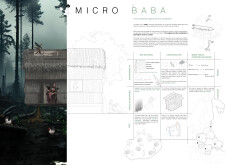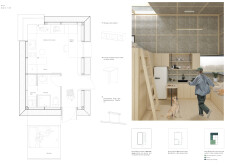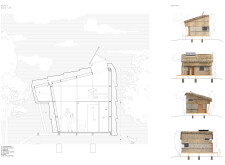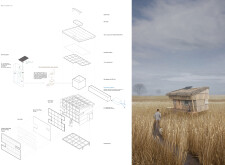5 key facts about this project
### Project Overview
Located within a culturally rich area, the Micro Baba design project draws from Slavic folklore, particularly the character of Baba Yaga, which embodies complexity, nurturing, and the interplay between nature and human experience. The project aims to connect traditional narratives with contemporary architectural practices while maintaining a focus on sustainability and ecological responsibility. This integration of cultural storytelling and modern design serves as a framework for creating livable spaces that foster community and warmth.
### Spatial Configuration and User Experience
The interior layout prioritizes efficiency and functionality through an open floor plan that facilitates seamless movement between the kitchen, workspace, and sleeping quarters. This arrangement supports flexibility and maximizes the limited footprint, featuring space optimization solutions such as compact folding tables and built-in cabinetry. Careful attention to natural light through large windows and open ceilings enhances the psychological well-being of occupants while reducing the need for artificial lighting. The design also strategically separates living and working zones to promote productivity without sacrificing comfort.
### Material Selection and Sustainability
A commitment to sustainability informs the choice of materials used throughout the project. Hempcrete, a breathable and energy-efficient material, forms the structure's walls, while straw bales provide effective insulation for varying climates. The thatched roofing, made from reed, not only meets aesthetic goals but also enhances thermal performance and allows for composting, aligning with waste reduction principles. Additionally, components made from recycled materials underscore the project's dedication to environmental responsibility.
Incorporating innovative solutions such as solar panels and a rainwater collection system further emphasizes the commitment to renewable resources. A composting toilet enhances the sustainable waste management approach. Overall, the Micro Baba project exemplifies a careful blending of cultural heritage and modern ecological practices, creating a distinctive living environment rooted in tradition yet responsive to contemporary sustainability needs.


